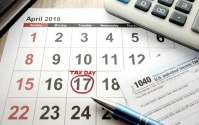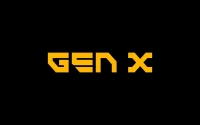Have you seen the list? I mean, really seen it?
The schedule of what’s coming to streaming in October is out, and at first glance, it looks like a simple, seasonal content dump. A mountain of horror films for "spooky season." You see Netflix dropping the Austin Powers trilogy alongside The Hurt Locker. HBO Max loading up its cannon with everything from The Exorcist to Beetlejuice. Prime Video resurrecting the entire classic Universal Monsters library—Dracula, Frankenstein, the lot—while Hulu counters with the complete Saw and Scream franchises.
It’s a lot. And the immediate, human reaction is a kind of paralysis. A low-grade anxiety that whispers, "How will I ever watch all of this?"
But I want you to take a step back with me. Look past the individual titles. Forget, for a moment, about making a watchlist. What we're seeing here isn't just a list of movies; it's a profound technological and cultural paradigm shift happening right before our eyes. When I looked at the sheer volume of titles dropping on October 1st alone, from the entire James Bond catalog on Prime to The Goonies on Netflix, I honestly just sat back in my chair, speechless. This is the kind of breakthrough that reminds me why I got into this field in the first place.
We’ve spent the better part of a decade talking about the "Streaming Wars." That framing is now officially obsolete. The war is over. What we’re living in now is the aftermath: the Streaming Deluge.
The "wars" were a battle for territory, fought with the weapon of exclusivity. Netflix vs. Disney+ vs. HBO Max, each building digital fortresses around their crown jewels. The goal was to make you choose a side. But look at this October list. Ip Man is on both Netflix and Hulu. The Scream franchise is on Hulu, Paramount+, and Peacock. Edward Scissorhands is on three different services. This isn't a war anymore. This is a complex, cooperative, and overwhelming system of mass distribution. We've moved from a war of attrition—in simpler terms, a fight over who could hoard the most exclusive shows—to a new era defined by logistics, data, and curation.
This moment feels, to me, a lot like the period right after Gutenberg perfected the printing press. For centuries, access to information was the primary challenge. A book was a rare, precious object. Then, suddenly, it wasn't. The problem shifted overnight from access to navigation. How do you find the one book you need in a library that is suddenly infinite?
That’s where we are now. The challenge is no longer "Can I watch The Shining?" but "Of the 500 horror movies just made available to me, which ones should I watch, in what order, and why?"
The Digital Sommelier: Turning a Deluge into a Discovery
From Gatekeepers to Gardeners
So, if the deluge is the new reality, what does that mean for us? What’s the next frontier?

The answer is beautiful, and it’s already taking shape. It’s the dawn of hyper-personalized, intelligent curation. The future of media isn’t about the pipes that deliver the content, but the intelligence layer that sits on top of them, helping us navigate the flood. Think about the system behind this October release schedule for a second: the multi-year licensing deals being negotiated in boardrooms, the expanded AMC deal bringing Daryl Dixon to Netflix, the Hallmark partnership for The Way Home, the petabytes of data being shuffled between global server farms, the recommendation algorithms processing billions of user inputs in real-time all to ensure that you can seamlessly switch from Coming to America to Talk to Me without a single hiccup.
This is a technological marvel of staggering complexity. We're talking about a global distribution network that makes the logistics of FedEx look quaint. And its sole purpose is to manage a library of human culture and deliver it, on demand, to your screen.
The responsibility, of course, falls on the architects of these systems to be more than just gatekeepers; they must become gardeners. They have to cultivate, recommend, and connect. An algorithm that just shows you what you already like creates a filter bubble. But an algorithm that can understand why you liked Hereditary and correctly predict that you might also love the 1931 version of Dracula? That's not a filter bubble; that's an insightful guide. It’s a digital sommelier for culture.
Where do we see the proof that this is a positive step? I always look to the community. On a recent Reddit thread discussing the October lists, the cynicism I expected was almost entirely absent. Instead, I saw comments like:
"My dad is a huge classic horror fan, I'm into modern A24 stuff. The fact that we can both dive into HBO Max this month and have a shared 'horrorfest' is amazing."*
"Honestly, the best part isn't the big new shows. It's that my kids can watch SuperKitties and Spidey on Disney+ while I finally catch up on The Walking Dead on Netflix. The whole family is covered by the same ecosystem."*
"As someone who grew up taping movies off TV, seeing the entire Nightmare on Elm Street franchise just… appear… is mind-blowing. The friction is gone."*
That last comment says it all. The friction is gone. We’ve solved the problem of access. Now, we get to focus on the much more interesting, much more human problem of discovery. We are building a Library of Alexandria for moving images, and it’s accessible to nearly everyone on the planet.
What will you do with that key? What forgotten classic will you uncover? What new series will define the dinner-table conversations for the next month? The system is in place. The library is open. The deluge is here. And frankly, it’s magnificent.
The Library of Everything, Instantly
The next great human endeavor isn’t about creating more information; it’s about building the elegant, intuitive, and deeply human systems that will help us find meaning within it. We are no longer just consumers of media. We are all becoming curators of our own, infinite museum.
Reference article source:









